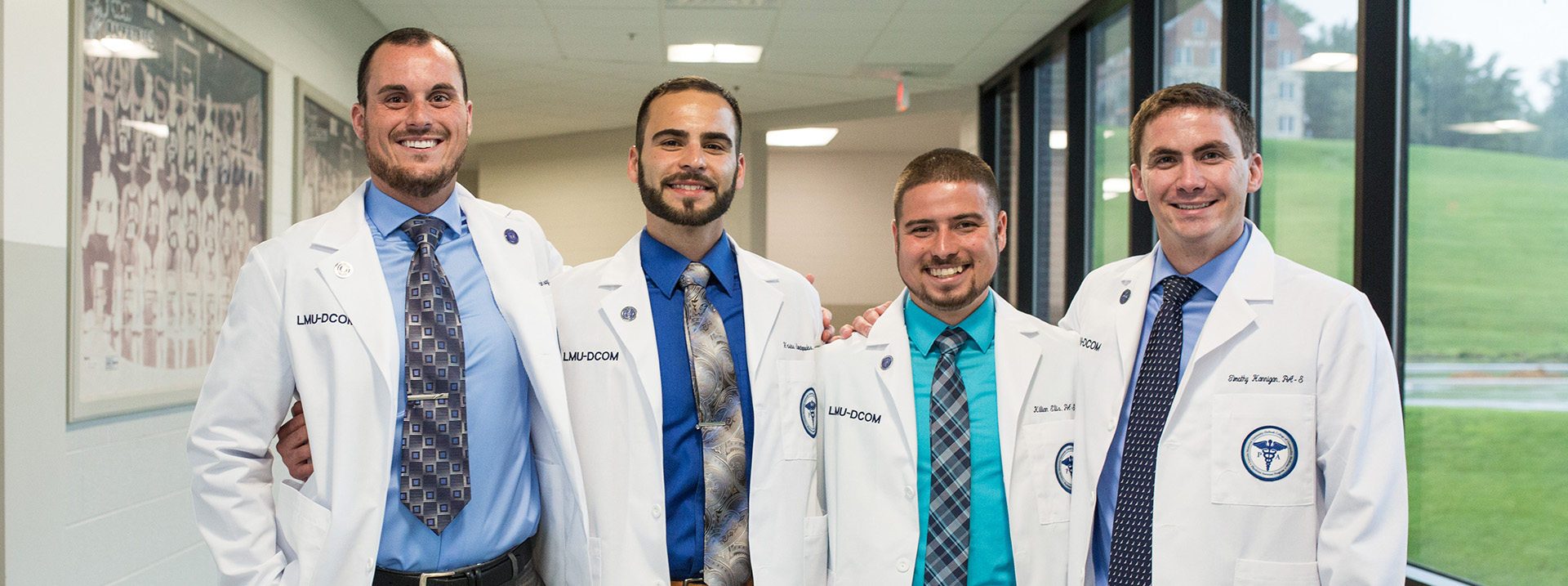
The LMU-SMS PA-Harrogate Program is a full-time (27 months) graduate-level program with graduates being awarded a Master of Medical Science (MMS) degree upon successful completion of minimum competency and all other degree requirements.
The curriculum is divided into a 14-month didactic, preclinical phase, and a 13-month clinical phase. The didactic program will be conducted only on the Harrogate campus. The clinical portion of the program will be provided at urban and rural single and multi-specialty clinics and community and tertiary hospital settings with physician, nurse practitioner, and PA preceptors. Clinical rotations are mainly located in the southeastern United States, but other locations throughout the U.S. are available as well.
No advanced placement, transfer credit, or credit for experiential learning will be awarded for the program.
In the didactic phase of the curriculum, students will pursue intensive coursework in the basic medical, clinical and behavioral sciences, which will include medical gross anatomy, clinical skills training, clinical medicine, physical examination, and history taking, physiology, pharmacology, pathophysiology, and PA professional issues. This phase of the curriculum will provide a foundation for the subsequent clinical phase of the program.
The clinical phase of the curriculum will be made up of four to eight-week rotations, which will include family practice, internal medicine, pediatrics, surgery, emergency medicine, women's health, orthopedics, behavior medicine, elective I and elective II. Elective experiences are available in many areas of medicine, including Cardiology, Cardiovascular Surgery, Critical Care, Dermatology, Gastroenterology, Gynecology, Hematology Oncology, Inpatient Neurology, Nephrology, Neurosurgery, Pediatric Emergency Medicine, Pediatric Internal Medicine, Urgent Care, Urology, Vascular Surgery. The PA program has core clinical sites in Florida, Kentucky, Tennessee, and Texas. Students can expect to travel to one or more of these locations during the clinical phase. Transportation, room, and board are taken into account for financial aid.
During the clinical year, students will be required to complete a capstone project which consists of two sections. The first section enables the PA students to foster professionalism through continuing medical education activities, the gaining of certifications, proficiency of skills/procedures, community involvement, and interaction with their soon-to-be colleagues and peers. The second section includes professional writing designed to provide the PA student with an opportunity to gain further information on selected and approved medical topics. The student will work with an approved advisor on the capstone project.
For more information, contact our admissions office at paadmissions@lmunet.ed